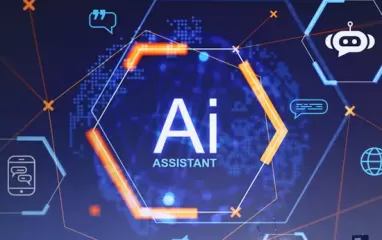Other recent blogs


Let's talk
Reach out, we'd love to hear from you!
In today's fast-paced era where people see airports as more than just transit destinations, retail outlets hold significant importance in delivering the immersive airport experience to travelers. Such settings provide vast options for shopping, food, and beverage under a single roof along with the facility of currency exchange and banking services, lounge services for certain passengers, car rentals and transportation services, internet and charging stations, accommodation booking services, advertising, vending machines, personal services like spas, information desks, and parking services.
These services at the airport add a high convenience quotient to the traveling journey of passengers while catering to their diverse needs. However, the range and quality of these services tend to differ according to the airport's size and location. To make the travel experience more smooth and hassle-free, many airport authorities are now harnessing the power of analytics and artificial intelligence across airport infrastructure to deliver hyper-personalized air travel experiences to their customers.
Artificial intelligence (AI) has made great strides in the last few years, leading to unprecedented innovation, connectivity, and transformation across various industries. Being no stranger to this remarkable progress, the global aviation industry is embracing the reality of AI-driven operations with open arms for normal airport commerce. Here’s why - airport commerce plays a pivotal role in catering to the diverse needs of travelers by providing them with convenience, entertainment, and services as they wait for their flights or as they arrive at a destination.
In this blog, we will explore the transformative impact of AI in enhancing airport commerce, with a core focus on potential AI benefits in the aviation industry.
From security to personalization: Intelligent automation's impact on airport commerce operations
The integration of intelligent automation along with cloud networks, biometrics, mobility solutions, data science and immersive technologies, at the forefront of airport operations is playing a pivotal role in revolutionizing various areas of airport operations in the airport ecosystem, including:
- Airport operations: Airport operations, which include a vast ecosystem of people, processes, and technologies working in sync, is prone to high manual errors. AI creates an end-to-end connected airport system by potentially converting multiple aspects of airport operations by seamlessly automating day-to-day operations, which results in minimal human errors. From perimeter security to runway, AI makes the processes smart at the intersection of data-driven insights, real-time computation, and mission-critical connectivity.
- Hassle-free travel experience: Baggage handling has always been a contentious concern for the passengers at the airport. With intelligent automation, the problem od baggage handling problems, including congestion, routing errors, and baggage mishandling, can be solved conveniently. AI-centric process automation approach elevates travel experiences by automating luggage sorting, tracking, and routing and helps regain passenger confidence. Also, it helps prioritizing the safe and reliable handling of luggage at airports while optimizing the traceability more directly. This way, it ensures a seamless travel experience for all passengers with minimal risks of mishandled baggage.
- Security and Screening: AI has immense potential to greatly enhance security procedures and equipment across the airport ecosystem by automating security and identifying hazards more quickly than humans. For instance, AI-powered systems can analyze X-ray images of baggage and detect possible risks more accurately and quickly than human operators. AI can also be used in biometric identification systems, similar to facial recognition, to streamline security checks and border control procedures.
- Predictive Maintenance: AI's predictive analytics capabilities can be leveraged to prevent equipment failures and holdbacks. By analyzing data from sensors on various airport equipment, AI can identify patterns and forecast possible breakdowns before they happen, reducing time-out and maintenance costs.
- Automated Check-ins: AI in sync with facial recognition and retinal technology plays a vital role in enhancing security at check-ins, self-service kiosks, or boarding gates. For example - automation of check-in and boarding processes enables passengers to quickly check-in, drop their luggage, pass through security, and board the plane after a one-time enrollment, all without requiring them to show their passport or boarding pass. With AI in action, everything from minor incidents to the severe life-threatening security issue at airports can be solved while making the whole operational process smooth and seamless.
- Personalized Retail Experiences: Airports aren't just transportation centers but also serve as the major retail centers meeting different demands of travelers on the go. With the use of Generative AI, companies are enhances the customer experience by furnishing personalized advertising and deals recommendations while significantly improving retailer-shopper emotional connections. Generative AI enhances brands' understanding of what their customers want, need, and deserve from their products and allows them to improvise the customer journey where possible through tailor-made offerings. For example, based on a passenger's former purchases or browsing behavior, AI can suggest products they might be interested in. This can increase deals for retailers and enhance the shopping experience for passengers.
Smart Airport commerce: A way forward to transformative passenger experience

Intelligent automation’s role in airport commerce is set to grow in the coming years. More sophisticated AI-driven models can provide better predictions and automation indeed. For instance, AI could be used to forecast flight delays predicated on weather data and other factors, enabling better scheduling and resource planning.
Likewise, as airports continue to evolve into "smart airports," Automation in sync of AI will play a pivotal role in integrating various systems and processes, from security and operations to retail and customer service. This will enable more effective and seamless airport experiences. AI isn't a bare luxury or add-on but a necessity for new-age airports. It's pivotal for airport drivers to embrace AI and invest in the right technologies to stay competitive in the digital age.
The journey towards AI-powered smarter airports is just beginning. The possibilities are endless, and the benefits – from enhanced operations and security to improved passenger experiences – are immense. So, fasten your seatbelts as we embark on this instigative trip into the future!




